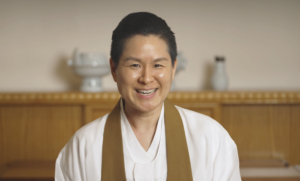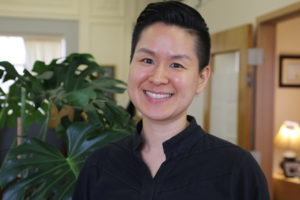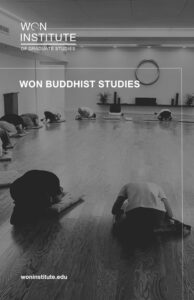ACADEMIC Certificate Programs
Certificate in Won Buddhist Studies
Further Your Understanding of Won Buddhism
Fall 2024 Final Deadline – August 1st
to Complete Full Time
Program Retreats
About the Certificate in Won Buddhist Studies Program
Students may pursue a certificate in Buddhist studies program or a master’s degree program. The Won Buddhism Certificate (WBC) is an 18-credit program for students wishing to further their understanding of Won Buddhism in the context of other Buddhist and religious traditions. Students can tailor their course of study to satisfy their individual interests and development goals. Certificate students enroll in the Master’s degree program in Won Buddhist Studies and may choose at any time to apply their certificate courses toward the Master’s degree.
Program Details
The Won Institute of Graduate Studies offers a Certificate in Won Buddhist Studies (WBC) through its Won Buddhist Studies program. The certificate requires 18 credits of academic studies in Won Buddhist and Buddhist doctrine and practice for individuals interested in gaining a deeper understanding of Buddhism.
This is an advanced course of study designed to:
- Deepen acquaintance with Buddhist and Won Buddhist doctrine
- Foster a personal contemplative practice
- Create new, or broaden existing, career options
- Enhance or develop new contemplative skills as part of the life-long process of learning.
The Won Institute of Graduate Studies has institutional accreditation from the Middle States Commission on Higher Education, an accrediting agency recognized by the U.S. Secretary of Education and the Council for Higher Education Administration.
View our full accreditation details on our Consumer Information page.
To join the Master of Won Buddist Studies or Certificate of Won Buddhism Studies programs, you must obtain:
- Bachelor’s Degree in Won Buddhism or Bachelor’s Degree in any subject.
and
- Completion of the Preparatory Won Buddhist Studies (PWBS) courses.
Additional requirements may be required for pre-minister students. Please consult the most recent course catalog for more information.
A graduate-level program, the WBS Certificate will contribute to the careers of professionals in many fields:
- Professional development for teachers wishing to enhance their understanding of Buddhism
- Interfaith research for clergy members wishing to broaden their perspective on religious groups in America
- Religious Studies students who wish to deepen their direct acquaintance with eastern religions
- Scholars pursuing research in Buddhism, Taoism, and Confucianism
- Integrated health practitioners who wish to gain a deeper understanding of meditation and mindfulness for use in their professional and personal lives
- Religious workers, such as: assistants, group leaders
The Certificate in Won Buddhist Studies takes 1 year to complete. When you begin the program, you’ll learn about the principles and ethics of Won Buddhism. You’ll also have practice classes where you learn about meditation and mindfulness. Once you progress further into the program, you’ll learn about the theory and applications of Won Buddhism.
You can explore the full list of required courses for this program here.
Won Institute of Graduate Studies has a team of exceptional faculty members who are committed to teaching and helping students achieve their goals. Get to know our faculty and learn more about their backgrounds.
Whether you want to increase your knowledge of Won Buddhism or become an ordained minister or lay leader, the Won Buddhism online learning master’s program is an ideal way to get started. Our program ensures you have a deep understanding of Won Buddhist teachings and practices. It also helps you to apply this knowledge in a setting you design for yourself: a calm, welcoming environment for teaching dharma, yoga, or meditation and in therapeutic environments. Students also participate in program retreats at the Won Dharma Center in Claverack, NY.
At the Won Institute, we understand that tuition and fees can be a major financial investment. Learn more information about tuition and fees, and our financial resources including scholarship opportunities.
While Won Institute of Graduate Studies is nondenominational, it fosters many learning principles from Won Buddhism, applying them to many academic programs. Won Buddhism is the practice of unifying the spirit of several topics, such as morality, equality, spirituality, and religious practice in different settings, from science and economics to social justice and human endeavors.
When you study at Won Institute, you can see how we have:
- Diverse, highly regarded staff and faculty
- Flexible, hybrid programs with online and in-person learning
- A comprehensive education in Won Buddhism
- Advanced doctoral-level training for increased opportunities in research, teaching, and practice
- Coursework in mindfulness and meditation
- Regional accreditation from Middle States Commission on Higher Education
- Study abroad options in South Korea
Apply Now
If you’re ready to learn more about our Won Buddhist Certificate program, contact us directly or apply today and get started on your journey!

Ready to Explore Won Buddhism?
Apply to the Certificate in Won Buddhist Studies Program
Ready to learn more?
Complete the form to be connected with an admissions counselor.
Resources Related to Our Certificate in Won Buddhist Studies Program

A New Era for Won Institute: Welcoming Dr. Wonsun Oh as President
A Rich Legacy The Won Institute of Graduate Studies is thrilled to announce the appointment of Dr. Wonsun Oh as the new President. A distinguished

The Threefold Practice of Won Buddhism Rev. Grace Song
In Won Buddhism, the threefold practice—absorption, inquiry, and making mindful choices—maps out the path to spiritual freedom. Rev. Grace Song describes how these principles work together

Mayor’s Commission on Faith-Based and Interfaith Affairs Welcomes Newest Member, Rev. Grace Song
Won Institute of Graduate Studies is excited to announce, Rev. Grace Song, Chair of the Won Buddhist Studies Department is the newest member of the
